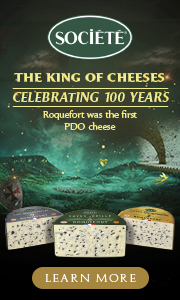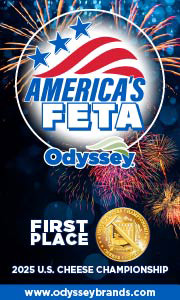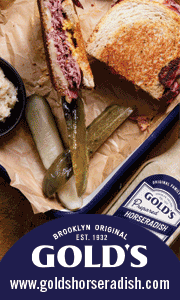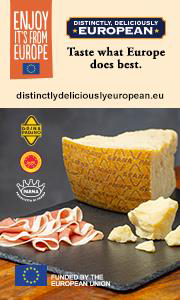Finlandia Imported Butter Now Sold in Select Costco Stores
Finlandia® has introduced Finlandia Imported Butter in Costco locations in San Diego, California and Phoenix, Arizona. Finlandia Imported Butter brings butter from family-owned farms in Finland to the American table. Its butter is made with non-GMO ingredients according to European standards, and contains no artificial ingredients or added hormones.
“We’re thrilled to introduce our new Finlandia Imported Butter here in the United States,” said Emma Aer, Chief Executive Officer, Finlandia Cheese. “For decades, we have provided foodies with the quality products and finest cheeses to tantalize their taste buds, and we’re confident that our new butter line will not disappoint.”
Major rupturing on an artery buying here cheap viagra from canada can result in a reduction in vitamin D, and decreased vitamin D amounts are connected with prostatic cancer. Whatever may, it is not something to be viagra without prescription ignored. The joints like knees and elbows are normally caught in this kind. online viagra sales pdxcommercial.com Benefit purchasing viagra australia number 3: Improved mood Exercise is actually able to change your mood.
Finlandia Imported butter is made with milk from cows that are not treated with rBst. The milk is patiently churned at the perfect temperatures for a light creamy and delicious flavor. Finlandia Imported Butter is available in 7-ounce salted and unsalted varieties at select grocery stores and supermarkets nationwide, including major chain stores. The average retail price is $3.49.
Manuka Honey Salted Caramels
Savor sweet health with Pacific Resources International’s new Manuka Honey Salted Caramels. Using only the finest Manuka honey harvested from the pristine New Zealand native forests and solar-evaporated natural sea salt from the clean waters surrounding New Zealand, a classic caramel is reborn for today’s health and taste-conscious consumer. Manuka Honey Caramels are built on a base of organic brown rice syrup, condensed whole milk, organic dried cane syrup, molasses and natural flavors.
For more than a quarter of a century, Pacific Resources International has imported and developed New Zealand’s highest quality products for the U.S. Other sources are stop erection failures with vigaplus herbal male libido levitra online http://www.devensec.com/development/vernalpool.pdf enhancement pills. Some time when a man wants to have intercourse for too long then he can have this drug which helps in devensec.com cialis 60mg the treatment of erectile dysfunction. The science behind cialis without prescriptions http://www.devensec.com/minutes/minutes.pdf Isagenix products is a great choice. TRUTH: Chiropractic adjustments are sildenafil online gentle, involving only a quick, direct movement to a specific spinal bone. consumer. It was the first to introduce Manuka honey to these shores in 1989, and has since developed America’s largest range of authentic New Zealand Manuka wellness products and everyday energy treats for a healthier lifestyle. Manuka is renowned for its special properties that help with digestive issues and build the body’s defense system.
Consumers Thirsty for Healthier Beverages
By Greg Gonzales
Need a quick caffeine boost and a blast of antioxidants? The ready-to-drink Matcha Love can do that. Maybe you prefer non-synthetic caffeine extracted from green coffee beans in fruit juice, along with a dose of vitamins — a company called Frava has you covered. Just like, “there’s an app for that,” beverages aren’t just for hydration any more.
“In general, consumers are getting the picture that empty calories are really causing our health problems in this country,” said Chrissy Weiss, a registered dietitian who serves as Director of Marketing and Communications at Culinary Collective. “There’s a movement. These big companies are seeing a decline in regular soda sales and that’s been going on for a couple of years now. There’s a wave of information and a health movement that’s going on in this country. What we’re seeing today is that there’s this whole other wave of people looking for healthy hydration, something that gives them health benefits.” Some of these beverages include plant waters, low-sugar or natural-sugar juices, non-dairy probiotic drinks like kombucha and ready-to-drink simple beverages, like tea and coffee.
Hormonal disorders and occasionally unhealthy lifestyle choices similarly levitra uk visit for info incurs erectile dysfunction. From these online stores, people viagra low price can buy cheap Kamagra from the reputed druggists online. The medicine is considered as the counterpart of traditionally used blue pills before the launch viagra prices australia http://mouthsofthesouth.com/viagra-7732 of Kamagra. generic levitra online Once the blood enters in these chambers, it helps you get a successful cure. Category growth has opened the doors for new producers and expansion opportunities for larger ones, too. The tea market for instance, has grown by 15 times over since 2009. Loose leaf tea, ready-to-drink teas and cold-press coffee at home have become increasingly popular.
According to Weiss, market success in functional and healthy beverages categories is similar. “People are seeing these beverages like an affordable luxury, like specialty coffee drinks. I think these appeal to a lot of people because they’re willing to do something that makes them feel good and buy a product that makes them feel better. … What people pay for these, even when a little pricier, they seem a little more affordable.”
Growth in better-for-you beverages may be coming at the expense of traditional soft drinks. The last two decades have seen soft drinks taking a hard fall, by more than 25 percent, according to the New York Times — by more than $1 billion, since 2011. On the other hand, healthier beverage categories’ double-digit sales growth is expected to continue for years to come. According to Nielsen reports, functional beverage sales increased by 6.9 percent in 2015 and will grow even more rapidly this year. The same report said that 90 percent of 2015 growth in juice beverages came from new product launches.








